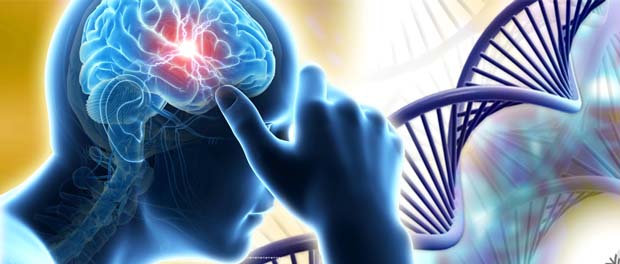
A region of the brain known as the amygdala is normally activated when people perceive fear and anger in others. This region, which is part of the limbic system, conveys the message to other regions of the brain to prepare oneself for what may be a threatening situation. We’ve seen previous research that offers an epigenetic connection between DNA methylation of the serotonin transporter gene (SLC6A4) and how an individual responds to stress. In the present study, peoples’ brains respond differently to fear and anger cues from others such that some individuals may exaggerate their response to signals that pose no threat and use up valuable energy in the process.
Scientists from the University of Virginia recently discovered a connection between the presence of a chemical tag known as DNA methylation and the activity of the amygdala in the brain. The research was published in the Proceedings of the National Academy of Sciences Early Edition.
In this study, researchers found varying levels of DNA methylation on the oxytocin receptor gene. The oxytocin receptor plays a role in the cell’s response to oxytocin, a molecule that is sometimes referred to as the “love hormone.” This hormone has been shown to be involved in a plethora of human behaviors ranging from the formation of relationships, caring, and bonding, to the establishment of trust. The hormone, overall, is crucial to the regulation of socialization and the way in which humans respond to threats or kindness. It is thought that individuals with reduced DNA methylation on the oxytocin receptor gene might be better suited to optimize the use of this crucial hormone.
The study looked at 98 Caucasians between the ages of 18 and 30. Their blood was drawn and they underwent functional MRI (fMRI) scans of their brain while viewing photos of fearful and angry faces. By bisulfite converting the DNA and pyrosequencing, the researchers were able to find a link between the level of DNA methylation of a person’s oxytocin receptor gene (OXTR) and the activity of their amygdala and other areas of the brain connected to processing emotions. Specifically, the researchers reported that “higher levels of OXTR methylation are associated with increased neural response and decreased functional coupling within regions supporting social perception and emotion processing.” In addition to the amygdala, the regions of the brain that were affected by the methylation of OXTR consist of the extended face perception system.
James P. Morris, the study’s co-author and a University of Virginia assistant professor of psychology indicated that people with lower DNA methylation demonstrated lessened brain response when exposed to fearful and angry faces. Additionally, they found an enhanced communication between the regions of the brain that are important for regulating emotion.
The team of researchers believe that these results may be helpful for unravelling the mystery of a diseased or disrupted brain state, particularly because individuals with autism spectrum disorder, depression, psychopathy, and anorexia nervosa present high amounts of DNA methylation at the oxytocin receptor.
According to Jessica J. Connelly, co-author and U.Va. assistant professor of psychology, “Defining biomarkers like this epigenetic tag associated with the oxytocin receptor may help us to predict future social developmental problems and inform interventions for those with social deficits.”
When imagining the future possibilities and implications this DNA methylation and oxytocin receptor research may have, the investigators think a blood test could be developed in order to predict how an individual may behave in social situations.
Source: Learn all about it and read more about their findings here: Epigenetic modification of the oxytocin receptor gene influences the perception of anger and fear in the human brain. Meghan H. Puglia, Travis S. Lillard, James P. Morris, Jessica J. Connelly. Proceedings of the National Academy of Sciences Early Edition. Feb 2015.
Reference: UVA Today. U.Va. Team Finds Tag That Explains Differences in Brain’s Response to Anger, Fear. Feb 2015.

